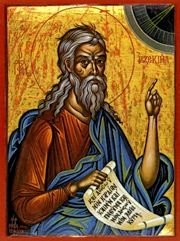Scotland Prelates Speak Out Against Human Fertilization and Embryology Bill


U.K. Church Leaders Oppose Fertilization Bill
Legislation to Pave Way for Hybrid Embryos
Legislation to Pave Way for Hybrid Embryos
GLASGOW, Scotland, NOV. 18, 2007 - Two of Scotland's leading prelates are urging politicians to seriously consider the Catholic community's concerns regarding the Human Fertilization and Embryology Bill, which will legalize the creation of human-animal embryos.
The statement released today was signed by Cardinal Keith O'Brien [pictured on left], the archbishop of Saint Andrews and Edinburgh, and Archbishop Mario Conti [pictured on right] of Glasgow, who is also chairman of the Joint Catholic Bioethics Committee of Britain and Ireland.
The bill, previously known as the Human Tissue and Embryos Bill, will be debated in the House of Lords on Monday. It updates current regulation of assisted reproduction and embryo research in Great Britain.
If passed, the bill will legalize the creation of hybrid embryos by fertilizing animal eggs with human sperm and vice versa, and also allow lesbian couples to be named as the parents to test-tube babies, without reference to a father. Opponents of the bill also worry that it could reopen the abortion debate, leading way to even greater liberalization of the procedure.
The statement of Cardinal O'Brien and Archbishop Conti states that the bill's proposal to create hybrid embryos "is not a justifiable direction for legitimate scientific research."
Human dignity
They added, "It is a dangerous and unnecessary precedent which does not respect the dignity of the human person. We note that such practices are banned in Canada, Australia and many European countries."
The prelates also noted with concern that the bill will diminish the natural status of fathers, and disrupt the natural bonds between parents and children.
Noting the complexity of the issues, the cardinal and the archbishop proposed the creation of national advisory committee to give appropriate advice to the government on bioethical issues.
"The public debate has so far been dominated by scientific and medical opinion," continued the statement, "when in reality mature ethical systems have a more crucial contribution in dealing with the issues at stake."
Archbishop Conti told reporters: "We are frankly appalled at proposals which would allow the creation of organisms which cross the species barrier. We call on the government to think again about the role of the Human Fertilization and Embryology Authority which has proved completely inadequate in dealing with ethical issues.
"The bill includes disturbing developments in embryonic experimentation and breaks down the natural bonds of family life linked with procreation."
"Profoundly wrong"
Cardinal Comac Murphy-O’Connor, archbishop of Westminster, also spoke out against the bill. In a letter published in today's edition of The Times online newspaper, he called the legislation "profoundly wrong."
He wrote: "The bill proposes to remove the need for in-vitro providers to take into account the child’s need for a father when considering an in-vitro application, and to confer legal parenthood on people who have no biological relationship to a child born as a result of in-vitro.
"This radically undermines the place of the father in a child’s life, and makes the natural rights of the child subordinate to the desires of the couple."
Labels: embryonic stem cell research, legislative action, moral teachings, science


<< Home